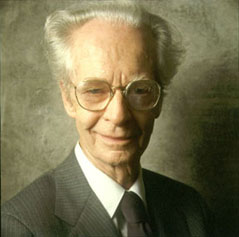This week we learn about Learning Theories in Teaching & Learning.
(a) Behaviorist theory : B.F Skinner
 |
| B.F. Skinner |
Skinner's operant conditioning concepts built on the classical conditioning concepts of Russian physiologist Ivan Pavlov. He said that since learning process occur inside the mind and we cannot see them directly, learning can only be inferred by observing behaviors. The stimulus response connections shape behavior. Reinforcements have negative and positive. Positive reinforcement such as give them rewards, praise the students could strengthen the responses. Skinner used reinforcement principles to develop programmed learning techniques for training and instruction. As teachers, they must give instructions clearly which provide the right stimuli and reinforcement to achieve desired learned responses from the students. And for now in the technology implications, computer programs can provide consistent, reliable stimuli and reinforcement on an individual basis.
Today, many classroom management techniques are based on behavior modification principles derived from Skinner's reinforcement principles. Means that teacher should use more positive reinforcement to motivate students in their academics and attitudes.
(b) Information Processing Theory : Atkinson and Shiffrin
This theory is about learning is encoding information into memory. Encoding begin with attention. Application ensures transfer into memory. Practice reinforces retention and aids recall.
Sensory registers----> Short term memory ----> Long term memory
(c) Child Development Theory (Constructivist theory)
: Jean Piaget
In his theory, learning is cognitive growth through neurological and social maturation. Children go through stages of cognitive development by interacting with their environment. When they confront unknowns, they experience disequilibrium, they respond with assimilation(fitting it into their views) or accommodation (changing their views). Learning abilities differ at each developmental stage. Children progress through the stages through exploration of their environment. In educational implication, instruction must be matched to students' developmental stage and provide opportunities for exploration. Technology can supply 'electronic manipulatives' that support exploration activities for various stages of development.
(b) Information Processing Theory : Atkinson and Shiffrin
This theory is about learning is encoding information into memory. Encoding begin with attention. Application ensures transfer into memory. Practice reinforces retention and aids recall.
Sensory registers----> Short term memory ----> Long term memory
(c) Child Development Theory (Constructivist theory)
: Jean Piaget
| Jean Piaget |
In his theory, learning is cognitive growth through neurological and social maturation. Children go through stages of cognitive development by interacting with their environment. When they confront unknowns, they experience disequilibrium, they respond with assimilation(fitting it into their views) or accommodation (changing their views). Learning abilities differ at each developmental stage. Children progress through the stages through exploration of their environment. In educational implication, instruction must be matched to students' developmental stage and provide opportunities for exploration. Technology can supply 'electronic manipulatives' that support exploration activities for various stages of development.
(d) Social Learning Theory : John Dewey
Learning requires social interaction among students on problems and issues of direct concern to them. They learn through social experiences. Growth is fostered through hands-on activities connected to the real world issues and problems. Instruction should stress collaborative activities and real-world connections. Technology supports opportunities for collaboration, visual presentations help students connect abstract concepts with real world application.